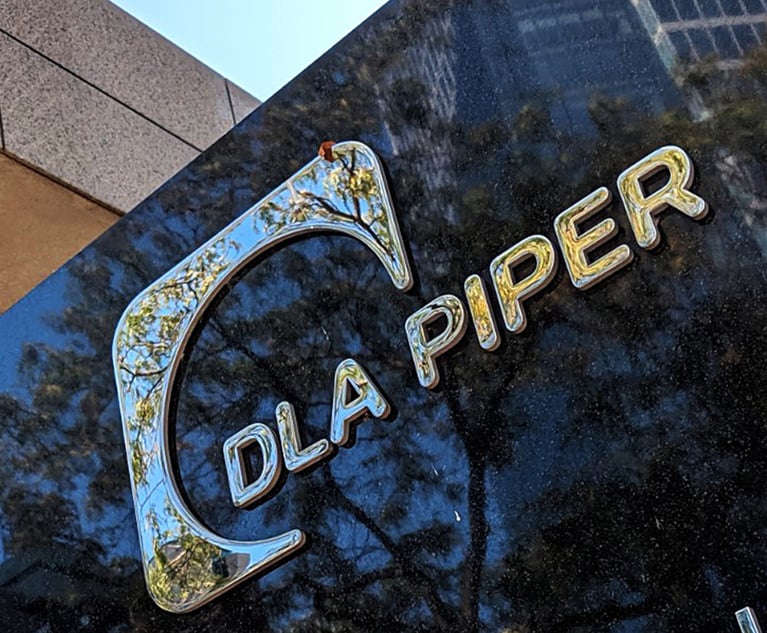Follow These Lawyers' and Judges' Advice to Have a Successful Pandemic-Era Jury Trial
Aside from the need to follow pandemic precautions exactly, trial lawyers who do in-person jury trials need to use their time efficiently, have a firm grasp of courtroom technology, and be frank with jurors about feelings on conducting a trial during the pandemic.
November 18, 2020 at 06:37 PM
5 minute read
During a recent in-person jury trial that used all the common COVID-19 precautions, lawyers on both sides were sitting at their counsel tables and they committed a pandemic faux pas. The fact that attorneys removed their face masks rubbed some jurors the wrong way—and counsel heard about it later. "We were notified by court staff that one jury member, or some jury members, had made the observation," recalled Houston plaintiffs attorney Mo Aziz, who won a $4 million jury verdict for his client after an in-person jury trial in federal court in Waco. "Rule No. 1 would be to follow the court's rules on precautions, because you don't want to be that one person, when everybody else has to sit and wear masks—the jury has to sit and wear masks—and you are the one flaunting the rules." Texas district courts and county courts-at-law have been able to hold in-person jury trials since October, because the Texas Supreme Court lifted a ban to allow judges to move cases forward as long as they had a long list of precautions in place. Although technically allowed, jury trials are still rare in the Lone Star State. Out of the state's major metro areas, only Harris County, the home of Houston, is conducting in-person jury trials. The counties that contain Austin, San Antonio and Dallas still have not brought jurors back to courtrooms in-person, although they are using or planning to use Zoom for virtual jury trials. We asked the lawyers and judges who have already done in-person jury trials during the pandemic to share their tips and advice for other attorneys who will come behind them. Aside from the need to follow pandemic precautions exactly, they said counsel need to use their time wisely, have a firm grasp of courtroom technology, and be frank with jurors about feelings on conducting a trial during the pandemic. Aziz, partner in Abraham, Watkins, Nichols, Sorrels, Agosto, Aziz & Stogner in Houston, noted that the pandemic has increased the need for trial attorneys to use their time wisely during in-person jury proceedings. "If someone is uncomfortable, to be perceived that you are dragging things out or causing unnecessary delays—that could be a problem," he explained. Judge Beau Miller of Harris County's 190th District Court said that COVID-19 has increased the need for lawyers to consult with judges before a jury trial. Counsel should get fully versed in the infection-control protocols that they judge is using in his courtroom, explained Miller, who has conducted five jury trials during the pandemic. "Mentally and physically they have to prepare for a trial like they would before, but be even more attentive to the physical demands of wearing a mask and speaking through a face shield," Miller said. "I notice my jaw gets tired." He urged attorneys to ask judges questions about how the courtroom will be set up for the trial. To use social distancing in a courtroom, people have to sit in unusual places—such as putting the jury in the courtroom gallery instead of the jury box. It was always important for trial attorneys to have a good grasp of courtroom technology systems before the pandemic, and now the requirement is imperative, Miller said. Lawyers need to be competent in bringing in witnesses on Zoom—and making sure they're online on standby—so the court isn't left waiting for the connection when it's time. Because jurors are socially distanced sitting in the gallery, lawyers need to know how to show exhibits on two televisions facing the jurors, Miller said. "How you interact with the technology is more sophisticated and complicated—but it can be more impactful, too," he said. |
'Abomination'
Without technology, criminal-defense attorney Brent Mayr never would have pulled off his trial at all. He participated in a hybrid jury trial where he and his co-counsel appeared by Zoom, and everyone else was present in the courtroom, Harris County Criminal Court-at-Law No. 9. He won an acquittal for his client's misdemeanor DWI charge. Despite the good outcome, Mayr said he does not recommend going to a jury trial during the pandemic. "It's an abomination of the jury trial system," said Mayr, managing shareholder in Mayr Law in Houston. He said he felt safe during jury selection, which was held at the NRG Arena in Houston, a large conference center space where everyone was socially distanced. He said everyone was wearing a microphone and headphones, which allowed the audio to come through clearly. But it was impossible to see jurors' faces. "They have masks covering everything from their nose and below. They also put the plastic face shields on them," Mayr said. "Any time the juror moves around it's reflecting the big stadium lights."  Courts in Harris County are conducting in-person jury trials. The courts' video, "Justice Requires Jurors," shows what jury selection and trials look like with COVID-19 precautions. (Photo: Harris County District Courts)
Courts in Harris County are conducting in-person jury trials. The courts' video, "Justice Requires Jurors," shows what jury selection and trials look like with COVID-19 precautions. (Photo: Harris County District Courts)
This content has been archived. It is available through our partners, LexisNexis® and Bloomberg Law.
To view this content, please continue to their sites.
Not a Lexis Subscriber?
Subscribe Now
Not a Bloomberg Law Subscriber?
Subscribe Now
NOT FOR REPRINT
© 2024 ALM Global, LLC, All Rights Reserved. Request academic re-use from www.copyright.com. All other uses, submit a request to [email protected]. For more information visit Asset & Logo Licensing.
You Might Like
View All
From ‘Deep Sadness’ to Little Concern, Gaetz’s Nomination Draws Sharp Reaction From Lawyers
7 minute read
DLA Piper Sued by 2 Houston Companies, Alleging a 'Fake Lawyer' Represented Them in Argentina
3 minute read

Trending Stories
- 1Gibson Dunn Sued By Crypto Client After Lateral Hire Causes Conflict of Interest
- 2Trump's Solicitor General Expected to 'Flip' Prelogar's Positions at Supreme Court
- 3Pharmacy Lawyers See Promise in NY Regulator's Curbs on PBM Industry
- 4Outgoing USPTO Director Kathi Vidal: ‘We All Want the Country to Be in a Better Place’
- 5Supreme Court Will Review Constitutionality Of FCC's Universal Service Fund
Who Got The Work
Michael G. Bongiorno, Andrew Scott Dulberg and Elizabeth E. Driscoll from Wilmer Cutler Pickering Hale and Dorr have stepped in to represent Symbotic Inc., an A.I.-enabled technology platform that focuses on increasing supply chain efficiency, and other defendants in a pending shareholder derivative lawsuit. The case, filed Oct. 2 in Massachusetts District Court by the Brown Law Firm on behalf of Stephen Austen, accuses certain officers and directors of misleading investors in regard to Symbotic's potential for margin growth by failing to disclose that the company was not equipped to timely deploy its systems or manage expenses through project delays. The case, assigned to U.S. District Judge Nathaniel M. Gorton, is 1:24-cv-12522, Austen v. Cohen et al.
Who Got The Work
Edmund Polubinski and Marie Killmond of Davis Polk & Wardwell have entered appearances for data platform software development company MongoDB and other defendants in a pending shareholder derivative lawsuit. The action, filed Oct. 7 in New York Southern District Court by the Brown Law Firm, accuses the company's directors and/or officers of falsely expressing confidence in the company’s restructuring of its sales incentive plan and downplaying the severity of decreases in its upfront commitments. The case is 1:24-cv-07594, Roy v. Ittycheria et al.
Who Got The Work
Amy O. Bruchs and Kurt F. Ellison of Michael Best & Friedrich have entered appearances for Epic Systems Corp. in a pending employment discrimination lawsuit. The suit was filed Sept. 7 in Wisconsin Western District Court by Levine Eisberner LLC and Siri & Glimstad on behalf of a project manager who claims that he was wrongfully terminated after applying for a religious exemption to the defendant's COVID-19 vaccine mandate. The case, assigned to U.S. Magistrate Judge Anita Marie Boor, is 3:24-cv-00630, Secker, Nathan v. Epic Systems Corporation.
Who Got The Work
David X. Sullivan, Thomas J. Finn and Gregory A. Hall from McCarter & English have entered appearances for Sunrun Installation Services in a pending civil rights lawsuit. The complaint was filed Sept. 4 in Connecticut District Court by attorney Robert M. Berke on behalf of former employee George Edward Steins, who was arrested and charged with employing an unregistered home improvement salesperson. The complaint alleges that had Sunrun informed the Connecticut Department of Consumer Protection that the plaintiff's employment had ended in 2017 and that he no longer held Sunrun's home improvement contractor license, he would not have been hit with charges, which were dismissed in May 2024. The case, assigned to U.S. District Judge Jeffrey A. Meyer, is 3:24-cv-01423, Steins v. Sunrun, Inc. et al.
Who Got The Work
Greenberg Traurig shareholder Joshua L. Raskin has entered an appearance for boohoo.com UK Ltd. in a pending patent infringement lawsuit. The suit, filed Sept. 3 in Texas Eastern District Court by Rozier Hardt McDonough on behalf of Alto Dynamics, asserts five patents related to an online shopping platform. The case, assigned to U.S. District Judge Rodney Gilstrap, is 2:24-cv-00719, Alto Dynamics, LLC v. boohoo.com UK Limited.
Featured Firms
Law Offices of Gary Martin Hays & Associates, P.C.
(470) 294-1674
Law Offices of Mark E. Salomone
(857) 444-6468
Smith & Hassler
(713) 739-1250






